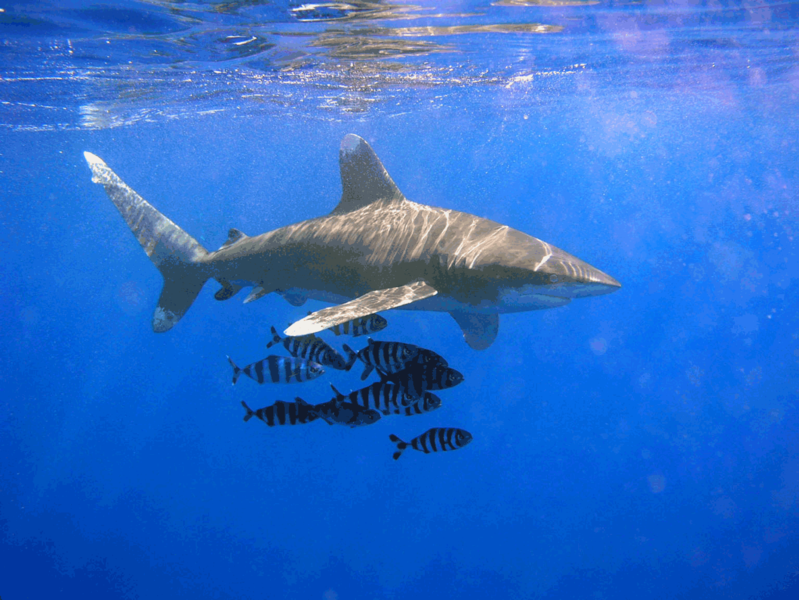With such a huge blue ocean to wander around, how exactly do marine predators like sharks find their next meal?
 Well, it turns out that instead of randomly swimming about, sharks and other marine hunters move about according to a particular set of rules that mean they are more likely to bump into something to eat.
Well, it turns out that instead of randomly swimming about, sharks and other marine hunters move about according to a particular set of rules that mean they are more likely to bump into something to eat.
For a while now, ecologists have studied the hunting behaviour of various animals including spider monkeys and discovered that they use something called a Levy Walk - this has a rather involved mathematical explanation, which essentially means that the animal undergoes lots of short-distance journeys interspersed with fewer longer-distance journeys. This is a better way of finding rare prey that is scattered in clumps across large areas of ocean.
Even our own fishing vessels and people out shopping are thought also use this strategy - if you're looking for a certain item in a supermarket, you might look carefully in one place and if you don't find what you want you move further to continue your search.
And now it seems that open ocean species do the same thing. David Sims from the Plymouth Marine Laboratory here in the UK, led and international team of researchers who collected and analysed diving data from tags attached to 31 marine creatures including sharks, cod, sea turtles and penguins.
What they found was that five out of the seven species tagged performed Levy Walks - they did lots of shorter dives then occasionally much longer dives. The team also created a virtual ocean on a computer which showed that these animals are much more likely to encounter prey by diving like this than if they simply wandered around.The interesting thing is that many different types of animals - including ourselves - seem to evolve similar general rules of how to forage. It could be really useful for other things like programming robots to collect samples from inaccessible locations like volcanoes and even other planets, and it could help us understand more about how our ancient ancestors explored and colonised distant shores
- Previous Bat Nav 2
- Next The eyes have it – or do they?










Comments
Add a comment